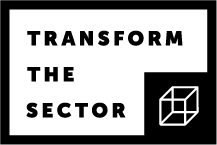Transform the sector
Conference Report
COMMON THEMES
Through a mix of plenaries, quick pitches, and breakout panel discussions, 36 speakers shared examples, expertise and their vision for a digital data empowered sector. Topics ranged from the cross-sectoral opportunity for collaboration represented by the Sustainable Development Goals (SDGs) to the challenges of accessing administrative data for improved evaluation. Some common themes surfaced throughout the day.
DATA ETHICS ARE INTEGRAL TO USING CLIENT DATA FOR IMPACT.
Speakers and participants spoke about the opportunity, and even of the urgent need, of the sector to become more data-enabled. With this
opportunity comes the responsibility to ensure that data collection and storage is done in a way that respects the people it is being collected from, and ensures that already vulnerable people are not being put at greater risk. As Lucy Bernholz, Senior Research Scholar at Stanford University, made clear
in her keynote speech, we need to build a digital civil society that reflects our values. Questions raised included: Where will the data be stored? Who will have access to it? How will it be used and who will benefit? Speakers presented various frameworks that encourage the ethical use of
data. digitalimpact.io, a project of The Digital Civil Society Lab, offers a set of four principles to guide civil society’s use of digital data: Consent, Privacy,
Openness, and Pluralism. Another set of principles is OCAP®, developed in 1998 by a group which later became the First Nations Information Governance Centre (FNIGC). OCAP® stands for Ownership, Control, Access, and Possession and establishes how Indigenous data should be collected, protected, used, or shared.


Summary of the day @ #sectortransform17 that captures the highlights of the conference and the momentum of this growing movement.